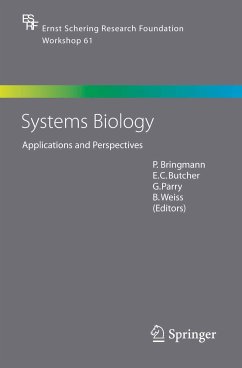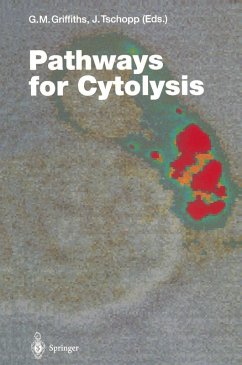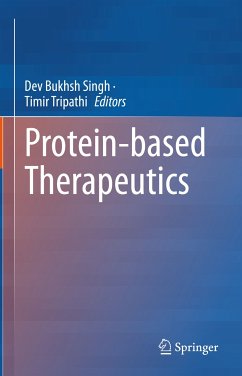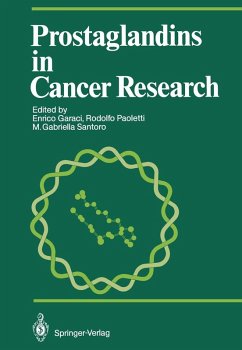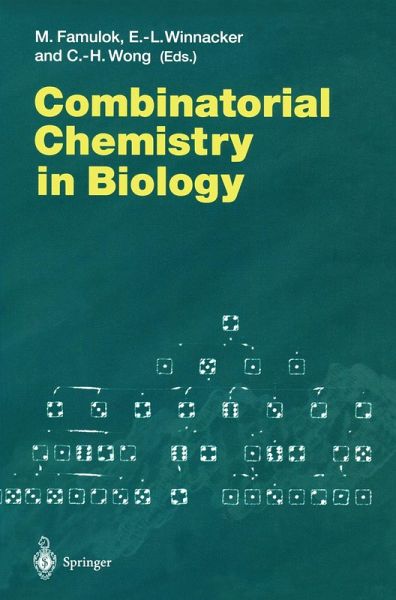
Combinatorial Chemistry in Biology (eBook, PDF)
Versandkostenfrei!
Sofort per Download lieferbar
72,95 €
inkl. MwSt.
Weitere Ausgaben:

PAYBACK Punkte
36 °P sammeln!
The essence of combinatorial chemistry or techniques involving "molecular diversity" is to generate enormous populations of molecules and to exploit appropriate screening techniques to isolate active components contained in these libraries. This idea has been the focus of research both in academia and in the pharmaceutical or biotechnology industry. Its developments go hand in hand with an exploding number of potential drug targets emerging from genomics and proteomics research. When the editors of Current Topics in Microbiology and Immunology encouraged us to assemble the present volume on Co...
The essence of combinatorial chemistry or techniques involving "molecular diversity" is to generate enormous populations of molecules and to exploit appropriate screening techniques to isolate active components contained in these libraries. This idea has been the focus of research both in academia and in the pharmaceutical or biotechnology industry. Its developments go hand in hand with an exploding number of potential drug targets emerging from genomics and proteomics research. When the editors of Current Topics in Microbiology and Immunology encouraged us to assemble the present volume on Combinatorial Chemistry in Biology, we immediately felt that this might prove quite beneficial for the audience of this series. The field of combinatorial chemistry extends over a broad range of disciplines, from synthetic organic chemistry to biochemistry, from material sciences to cell biology. Each of these fields may have its own view on this topic, something which is reflected in a growing number of monographs and "special editions" of jour nals devoted to this issue or aspects thereof. The title of the present volume of Springer-Verlag's series suggests that it also has its own special focus. And, generally speaking, this is not wrong: we would even claim the special focus of this volume is on the immunologically relevant aspects of combinatorial chemistry.
Dieser Download kann aus rechtlichen Gründen nur mit Rechnungsadresse in A, B, BG, CY, CZ, D, DK, EW, E, FIN, F, GR, HR, H, IRL, I, LT, L, LR, M, NL, PL, P, R, S, SLO, SK ausgeliefert werden.



